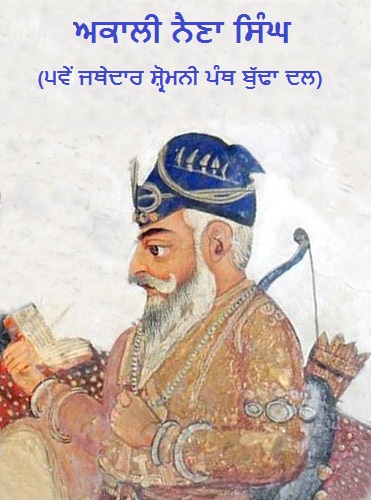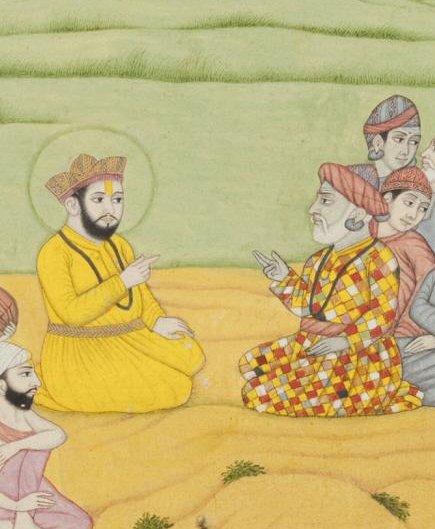Learn about Naina Singh, the 18th-century Nihang warrior famed for valor & guardianship of Akali Phula Singh, a Sikh icon. Explore his lasting legacy.
Discover Guru Nanak's profound discourse with yogi Bhangarnath in Punjab. Uncover insights on renouncing worldly life for spiritual truth.
Explore the lives of Sikh Gurus in 'GUR KIRAT PRAKASH' by Vir Singh Bal. A poetic journey through Sikh history, written in Braj and Gurmukhi.
Explore the spiritual significance of Lavan in Sikh weddings, symbolizing the soul's journey to union with the Divine, guided by Guru Granth Sahib.
Explore the spiritual journey of Sufi saint Mansur in this unpublished manuscript, highlighting his life, teachings, and legacy preserved in Patiala.
Explore the life of Sri Chand, son of Guru Nanak, founder of the Udasi sect, and revered ascetic who carried Guru Nanak's teachings far and wide.
BHANU, BHAI, a Sikh of Guru Arjan`s time, earned the sobriquet of Bhagat (devotee) for his piety and devotion. Guru Arjan appointed him to preach Guru Nanak`s word at Muzang, in Lahore. By his kirtan and exposition of the holy texts, Bhai Bhanu, as says Bhai Mani Singh, Sikhan di Bhagat Mala, converted many to the Sikh way of life. See KISNA, BHAI
Explore the life of Guru Gobind Singh, the tenth Sikh Guru, through insightful biographies. Discover his impact on Sikh history and traditions.
Discover Lal Singh's acclaimed travelogues and essays that shaped modern Punjabi prose. Explore Mera Valayati Safar Nama and more!
Explore the life of Guru Gobind Singh through PARCHIAN PATSHAI 10. Unpublished tales from Khalsa College, Amritsar, detail his battles & legacy.




